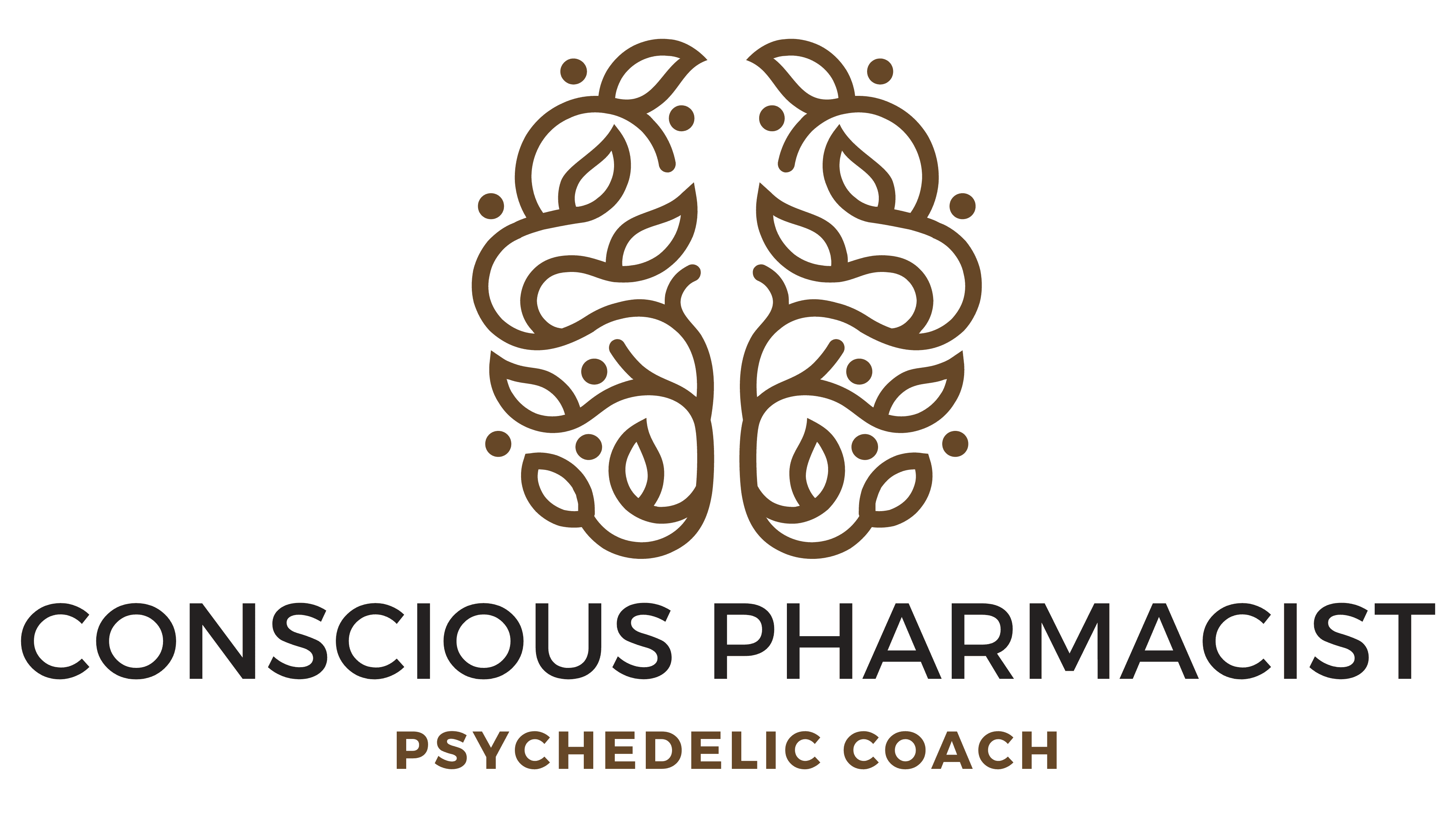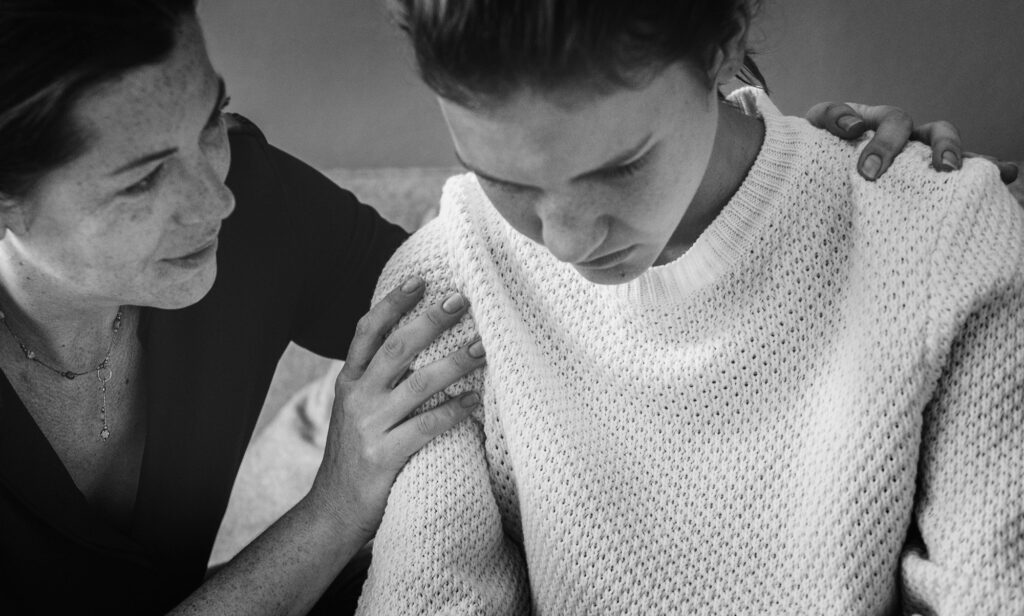In recent years, alternative treatments for Attention Deficit Hyperactivity Disorder (ADHD) have gained attention, especially those that harness natural compounds. Among these, psilocybin-based microdosing - the practice of bi-daily consuming very low, sub-hallucinogenic doses of psilocybin - has shown great promise. While traditionally associated with psychedelic experiences, emerging scientific research and many practical cases show …
In recent years, alternative treatments for Attention Deficit Hyperactivity Disorder (ADHD) have gained attention, especially those that harness natural compounds. Among these, psilocybin-based microdosing – the practice of bi-daily consuming very low, sub-hallucinogenic doses of psilocybin – has shown great promise. While traditionally associated with psychedelic experiences, emerging scientific research and many practical cases show that psilocybin, at microdose levels, may offer significant benefits for individuals with ADHD.
Because our team has succesfully helped many people with ADHD so far, in this article we will exploree the science, potential benefits, and broader impacts of psilocybin-based microdosing for people living with ADHD, so more people might benefit from our professional Microdosing Coaching.
Understanding ADHD
ADHD is a neurodevelopmental disorder characterized by symptoms of inattention, hyperactivity, and impulsivity. These symptoms can affect various aspects of life, including academic, professional, and personal relationships. Conventional treatments often include stimulant medications such as methylphenidate or amphetamines, behavioral therapy, or a combination of both. While these approaches can be effective, they are not without side effects, such as sleep disturbances, appetite suppression, and mood swings, leading many to seek alternative options.
What is Psilocybin Microdosing?
Psilocybin is the active compound found in certain species of mushrooms, often called “magic mushrooms”. It has been used for centuries in spiritual and healing practices. At higher doses, it is known for its psychedelic effects, which include altered perceptions and profound emotional insights. Microdosing, however, involves taking approximately 1/10th to 1/20th of a recreational dose, typically ranging from 0.1 to 0.3 grams of dried mushrooms. This dosage is designed to avoid any significant psychoactive effects while potentially offering cognitive and emotional benefits.
In recent years, scientific studies have shown that psilocybin can have positive effects on mental health. It is being researched for conditions like ADHD, depression, chronic pain, dementia, eating disorders, anxiety, and PTSD.
Read also: Psilocybin and Anxiety: An Evidence-Based Approach to Healing
The Role of Psilocybin-Assisted Therapy
Psilocybin microdosing is most effective when used in a controlled, therapeutic setting, such as offered by Conscious Pharmacist. Psilocybin-assisted therapy involves:
- Preparation: Setting goals and understanding expectations before the psilocybin experience, together with your Psychedelic Coach.
- Guided Sessions: Taking psilocybin in a safe, supervised environment with the trained and certified Conscious Pharmacist professionals.
- Integration: Processing the experience and applying insights into your daily life.
The Science Behind Psilocybin and ADHD
- Neuroplasticity and Brain Connectivity: Psilocybin has been shown to enhance neuroplasticity, the brain’s ability to form and reorganize synaptic connections. For individuals with ADHD, whose brains often exhibit atypical connectivity patterns, enhanced neuroplasticity may support improved focus, emotional regulation, and adaptability.
- Dopamine Regulation: ADHD is linked to dysregulated dopamine pathways, which affect motivation, attention, and reward processing. Research suggests that psilocybin influences serotonin receptors (particularly 5-HT2A), indirectly modulating dopamine activity. This could help balance dopamine levels, potentially alleviating ADHD symptoms.
- Reduction in Default Mode Network (DMN) Activity: Overactivity in the brain’s DMN is associated with mind-wandering and difficulty maintaining attention—common challenges for those with ADHD. Psilocybin has been shown to temporarily reduce DMN activity, potentially supporting greater presence and focus.
Potential Benefits of Microdosing for ADHD
- Improved Focus and Attention: Anecdotal reports from individuals practicing microdosing frequently highlight enhanced concentration and the ability to sustain attention on tasks for longer periods.
- Emotional Regulation: ADHD often comes with heightened emotional sensitivity and difficulty managing emotions. Psilocybin’s effects on serotonin receptors may foster emotional balance, helping individuals respond more calmly to stressors.
- Reduced Anxiety and Stress: Chronic anxiety is common among those with ADHD. Psilocybin microdosing has been associated with reduced anxiety levels, allowing individuals to approach daily tasks with greater ease.
- Enhanced Creativity and Problem-Solving: Microdosing is often linked to increased creative thinking and “outside-the-box” problem-solving—skills that can be particularly beneficial for navigating the unique challenges of ADHD.
- Fewer Side Effects Compared to Stimulants: Unlike traditional ADHD medications, which can cause jitteriness or insomnia, microdosing may offer symptom relief with fewer adverse effects. However, proper monitoring is crucial to ensure safe and effective use.
Read also: Unlocking New Horizons: The Transformative Power of Psychedelic Therapy and Microdosing
Scientific Evidence and Studies
Although large-scale clinical trials on psilocybin microdosing for ADHD are still in their infancy, early studies and anecdotal evidence are encouraging:
- Brain Study: A 2020 study found that psilocybin can help “reset” brain activity, improving mental flexibility and reducing rigid thought patterns.
- Small-Scale Surveys: A 2021 survey published in Frontiers in Psychiatry indicated that microdosing psychedelics, including psilocybin, was associated with self-reported improvements in mood, focus, and productivity.
- Case Studies: Individual case reports, such as those highlighted in the book The Psychedelic Explorer’s Guide, suggest significant improvements in ADHD symptoms with microdosing.
- Animal Studies: Preclinical studies have demonstrated psilocybin’s ability to promote neurogenesis and cognitive flexibility, both of which are relevant to ADHD management.
- Reports from Users: Anecdotal reports from individuals who microdose suggest that it helps with focus, energy, and mood stabilization.
Positive user reviews
These are some of the positive reviews by clients that follow our successful Microdosing Coaching Program:
- William (52, CEO of MedTech business): “From being a baby onwards I was always hyper active and my parents gave me ADHD medication till I was approx. 11 years old. After not getting medication I have been stuggling big time. Not only with myself and trying to keep my focus, but also to manage how people think about me. Because quite often one would think I was tripping on cocaine; because I always was so super energetic (without taking anything). Over the last 15+ years I have tried many supplements (e.g. LTO3, L-Theanine and nootropics such as Qualia) that helped a bit, but nothing that really nailed it. Since I have been microdosing psilocybin with the impactful coaching guidance of Sara Ahmadi, I have become a completely different person! Finally I feel connected with myself, I feel much calmer, can concentrate better, have become even more creative, sleep better and longer, and can now better maintain my concentration and focus. Really a world of difference from before I started microdosing. Hence, why I can highly recommend the Conscious Pharmacist microdosing program to other people with ADHD.”
- Jamie (31, diagnosed with ADHD at 25): “I’ve always struggled with focus, impulsivity, and feeling overwhelmed by my own thoughts. I decided to try microdosing psilocybin after hearing others with ADHD had success. As advised by my therapist at the Conscious Pharmacist, I started with a very small dose every three days. To my surprise, within two weeks, I noticed subtle but profound changes. My mind felt quieter; less like a chaotic whirlwind. I could focus on tasks without my usual restlessness, and I felt more present in conversations. It hasn’t ‘cured’ my ADHD, but it has definitely helped me manage it in a way that feels natural. I also feel more connected to my emotions, which has improved my relationships. Highly recommend exploring this, but always do your research and start small under the guidance of Sara Ahmadi!”
- Samantha (28, creative professional): “I’m a graphic designer with ADHD, and my biggest struggle is getting into ‘the zone’ at work. I’d tried prescription medications, but they made me jittery and anxious. Microdosing psilocybin in combination with the weekly coaching by Dr. Sara has been a game changer for me. Not only do I feel more focused, but I’ve also tapped into a new level of creativity. I’m now far better at prioritizing tasks and breaking down large projects into manageable chunks. On days I microdose, I feel calm, clear, and deeply connected to my work. It’s as though the background noise in my head has been turned down, and I can finally hear my own thoughts.”
- Alexia (35, parent and small business owner): “As someone with ADHD, emotional dysregulation has always been my biggest challenge. Even small frustrations could send me into a tailspin. After reading about psilocybin microdosing, I decided to try it via the Microdosing Therapy program of the Conscious Pharmacist; because I wanted to make sure it would not cause any risks with the medication that I am using. I started taking the psychedelic capsules once every four days, and after one month every two days. After the first four weeks, I noticed my reactions to stress were much more measured. Instead of snapping or spiraling, I find myself pausing, breathing, and responding thoughtfully. My ADHD brain feels less reactive, and I’m able to approach problems with a sense of curiosity instead of frustration. It’s not a silver bullet, but it’s been an incredible helpful and effective tool in my toolbox.”
- Sophia (24, student): “I’ve struggled in school and university my whole life because of ADHD. Staying on task felt impossible, and I was constantly procrastinating. After hearing about psilocybin microdosing, I decided to give it a try alongside my Conscious Pahramcists therapist’s guidance. It’s been very transformative ever since. On days I microdose, I can sit down, focus, and actually finish my assignments. I don’t feel like I’m forcing myself; it feels natural and almost effortless. Plus, my anxiety about my university classes has gone way down, which has improved my sleep and overall mood. It’s made such a big positive difference for me.”
- Jordan (40, entrepreneur): “I was diagnosed with ADHD as an adult and have tried many treatments over the years. Psilocybin has been the most effective. I use it at a microdose level to enhance focus and mindfulness. The best part? I feel more present in my life. My usual tendency to bounce between tasks has lessened, and I can finish what I start. It’s also improved my ability to listen: both to others and to myself. 🙂 My mind is less scattered, and I feel more grounded in my daily routines. Highly recommend this approach to anyone with ADHD looking for alternative ways to manage it.”
Challenges and Considerations
While the potential benefits are promising, there are important considerations:
- Lack of Standardized Protocols: Without established dosing guidelines, individuals may experience inconsistent results or inadvertently take doses that are too high. Hence, why at Consious Pharmacist we provide professional Microdosing Coaching by our certified coaches and under medical guidance.
- Legal Status: Psilocybin remains a controlled substance in many parts of the world. Those considering microdosing should be aware of the legal implications in their region. Hence, why we provide our services from Portugal, where it is legal to use.
- Individual Variability: Responses to microdosing can vary widely based on factors such as genetics, brain chemistry, and lifestyle. Hence, why we provide our Microdosing Coaching only by certified coaches and under medical guidance.
- Dosage: Microdosing requires precise measurement to avoid taking too much. Start low and go slow under our expert supervision.
- Potential Risks: While microdosing is generally considered safe, some individuals may experience side effects such as mild headaches, fatigue, or gastrointestinal discomfort. Hence, why you will always consult with one of our medical professionals before starting any new treatment.
The Path Forward
As public interest in psilocybin microdosing grows, so does the need for robust research. Ongoing studies at institutions such as Johns Hopkins University and Imperial College London are shedding light on psilocybin’s therapeutic potential. For individuals with ADHD, future clinical trials may pave the way for integrating psilocybin-based treatments into mainstream care.
Clinical evidence so far, shows why Psilocybin could be effective for ADHD:
- A Holistic Approach: Traditional ADHD treatments, such as stimulant medications, primarily address symptoms but do not tackle underlying emotional or psychological challenges. Psilocybin-assisted therapy, on the other hand, takes a holistic approach by addressing emotional, cognitive, and behavioral patterns.
- Potential for Long-Lasting Effects: Studies on psilocybin for other mental health conditions, like depression and anxiety, have shown that even a single dose can lead to sustained improvements over weeks or months. This could make it an attractive option for individuals seeking alternatives to daily medication.
- Reduction in Comorbid Symptoms: ADHD often coexists with other conditions, such as anxiety, depression, or substance use disorders. Psilocybin’s broad therapeutic effects may help alleviate these comorbidities, improving overall quality of life.
- Addressing Root Causes: Psilocybin experiences often involve exploring the root causes of emotional or behavioral patterns. This could help individuals with ADHD identify and work through challenges contributing to their symptoms.
Conclusion
Psilocybin microdosing offers a promising alternative for managing ADHD, combining potential cognitive, emotional, and behavioral benefits with a natural approach. While it is not a one-size-fits-all solution, the growing body of evidence suggests that microdosing may provide relief for those seeking alternatives to conventional treatments. As research continues, psilocybin-based therapies could become a valuable tool in the ADHD treatment landscape, empowering individuals to lead more focused and balanced lives.
Living with ADHD (Attention-Deficit/Hyperactivity Disorder) can be challenging. People with ADHD often struggle with focus, impulsivity, and emotional regulation. While traditional treatments like medication and therapy can help, some are exploring alternative options, including psilocybin and microdosing.
If you’re curious, consider discussing this option with one of our healthcare professionals to determine if it’s right for you.
Do you have any questions, would you like more information or book a consult for a psilocybin based Microdosing Coaching treatment to help minimize the impact of ADHD? Please book a consult HERE, or contact us via our contactform.
Author: Editor Team
Sources: Frontiers in Psychiatry, Sage Journals, Journal of Psychoactive Drugs, Biological Psychiatry, Harvard Health






